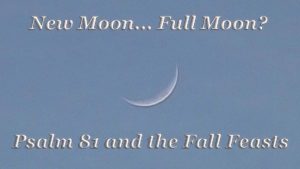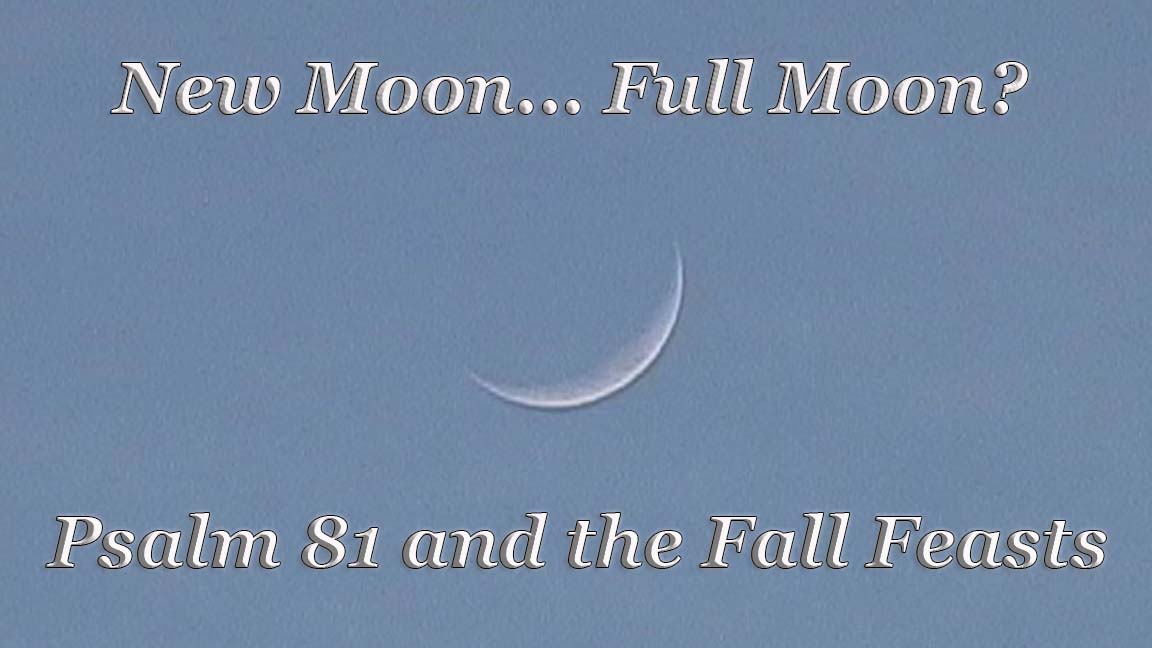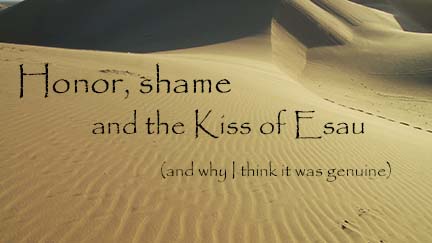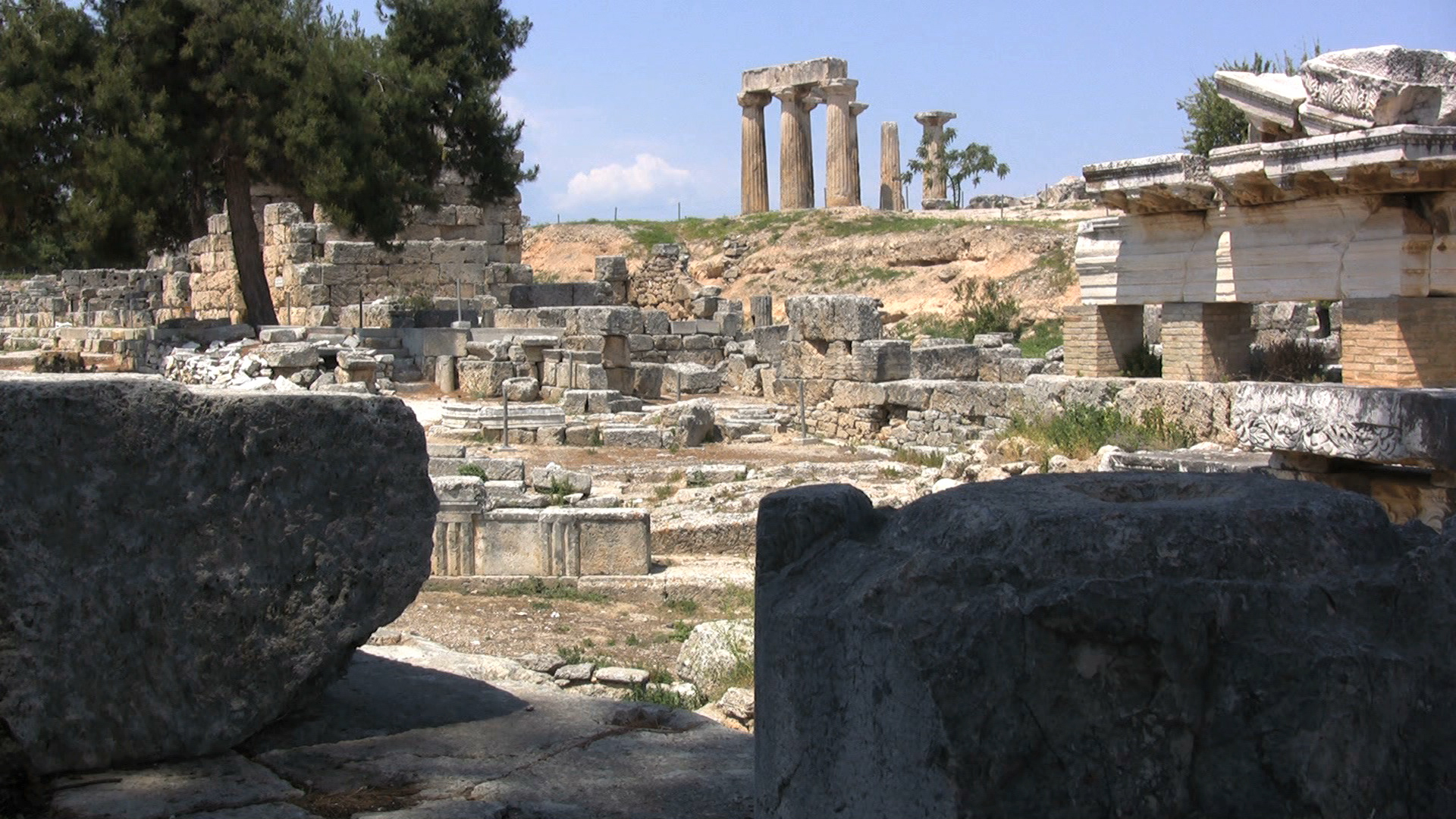 So, first of all, make sure you read the bibliography at the end if you want access to the source material I have been studying lately.
So, first of all, make sure you read the bibliography at the end if you want access to the source material I have been studying lately.
Second, I use Yom Teruah and Rosh HaShanah interchangeably – why? Because Tishri 1 is given no official name in Scripture – it is a concealed day, as I will show. Both names are traditional descriptions because of the nature of the day – which is multi-dimensional, but I will save that for a future blogpost. (If you are interested now in why it is considered the beginning of one of the Biblical new years, my Context for Kids video on Torah Portion Phineas actually explains this)
Third, I want to explain what a Targum is – the Targumim were Aramaic paraphrases of the Hebrew Bible for the common people during times that were roughly contemporary with the writing of the Gospels and Epistles. The Scripture would be read in Hebrew in the synagogue and then the paraphrase was given in Aramaic – but don’t fret about the word paraphrase, all that means is that the Targumim show us how the Scriptures were commonly understood in the days of Yeshua/Jesus. In other words, they were a form of commentary. I am including the text here of Psalm 81, which I ask you to read, focusing on the first five verses:
Psalm 81 (translated by Edward M Cook and available here)
- For praise; on the lyre that comes from Gath, composed by Asaph.
- Give praise in the presence of God, our strength; shout in the presence of the God of Jacob.
- Lift up the voice in praise, and set out timbrels, the lyre whose sound is sweet with harps.
- Blow the horn in the month of Tishri, in the month in which the day of our festivals is concealed.
- For he made a covenant for Israel; it is a legal ruling of the God of Jacob.
- He made it a testimony for Joseph, who did not go near the wife of his master; on that day he went out of the prison and ruled over all the land of Egypt. The tongue I did not know I have taught [and] heard.
- I have removed his shoulder from servitude; his hands were taken away from casting clay into a pot.
- In the time of the distress of Egypt, you called and I delivered you; I made you fast in the secret place where my presence is, where wheels of fire call out before him; I tested you by the waters of Dispute forever.
- Hear, O my people, and I will bear witness for you, O Israel if you will accept my word.
- There shall not be among you worshippers of a foreign idol, and you shall not bow down to a profane idol.
- I am the Lord your God, who brought you up from the land of Egypt; open wide your mouth with the words of Torah, and I will fill it with all good things.
- But my people did not receive my voice, and Israel did not want my word.
- And I expelled them for the thoughts of their heart, they went away in their wicked counsel.
- Would that my people had listened to me – that Israel would walk in my ways!
- In a little while, I will humble their enemies, and I will turn my strong blow against their enemies.
- The enemies of the Lord will be false to him, and their harshness will last forever.
- But he will feed him with the best of wheat bread: and I will satisfy you with honey from the rock.
This is what is called an enthronement Psalm, and according to the Aramaic Targum above, it was sung on Tishri 1. When was it sung? In what is called the “Mussaf” – the special services of a Feast Day which included special sacrifices, Psalms, and on Tishri 1, the blowing of trumpets (over and over and over again). The Targums are important not because they provide an alternate text that is somehow superior to the Hebrew, but because they sometimes explain things that are no longer known to modern readers. But in this case, does the Targum line up with the Hebrew, or does the English? I can tell you right now – it does not line up with English translations of 81.3 which are often mistakenly used as part of the whole calendar debate when in fact they have nothing to do with it:
English: Blow the trumpet at the new moon, at the full moon, on our feast day. (ESV (2001))
Aramaic: Blow the horn in the month of Tishri, in the month in which the day of our festivals is concealed.
LXX (Septuagint – 3rd C BCE) – Blow the trumpet at the new moon, in the glorious day of your feast.
Hebrew: תִּקְעוּ בַחֹדֶשׁ שׁוֹפָר; בַּכֵּסֶה, לְיוֹם חַגֵּנוּ, or, transliterated tikku v’chodesh shofar, b’kesseh l’yom chaggenu
tikku v’chodesh shofar – no big mystery here – blow the shofar at the new moon, which agrees with both versions reasonably enough. What about the second part of the verse? Does it say “full moon” or is that simply a traditional interpretation?
If you can read Hebrew or are familiar at least with words, l’yom chaggenu should be easily identified as our feast-day. This leaves one more word, kesseh – which does not mean full moon in this context (remember that Strongs will only tell you how a word is translated). It is from the lemma kaf samek aleph – related to words meaning throne as well as covering, and as the throne of Israel was always covered over with a canopy, a chuppah, therefore that throne was a concealed throne (just as the BRANCH of David, the Messianic King, was concealed). Psalm 81 was an enthronement Psalm, and when we read the Mussaf liturgy for Rosh HaShanah, we see it literally overflowing with overtones of the Messianic enthronement in the Last Day. So which version matches the original Hebrew the best? – Not shockingly, it is the Aramaic paraphrase written during the days when the Temple was still standing and all in attendance could hear this Psalm and understand its meaning.
Now as for the Targum – why did the paraphrase state “Tishri, in the month in which the day of our festivals is concealed?” Very simply, we know from Rosh HaShannah 2 (starting in 2.5) the process by which the new moon sightings were determined and the new month consecrated during Temple times. Until that validated sighting and consecration happened, the specific days of the festivals in the month of Tishri were concealed, unknown. The witnesses would come to the Temple and would then be individually questioned on exactly what the moon looked like when they saw it, which way they were facing, how high in the sky it was and which direction it was leaning. Not until they had matching testimony did the Head of the Sanhedrin call out “It is sanctified,” followed by a positive response from the rest of the Court, and the new month would be official – what was concealed was suddenly revealed! Very Messianic!
An understanding of Jewish eschatology and Feast language is vital to being able to eliminate so much of the modern controversies about the Scriptures. Daniel, Ezekiel, Paul, John and many others wrote within this context of intimately knowing about the Temple, the Feasts and the language surrounding them, and they used it without the need to explain it. Sadly, we did not grow up knowing this context and so we read and often fill holes with modern concepts without even knowing we are doing it. Knowledge is increasing, as Scripture promised, and we are blessed to live in such a time that being a scholar has never been easier – IF we know where to look for our answers.
************************
References: not all of these were used in this blog (** next to the ones I am using), but just to give you some recommended reading if you are interested in the topic:
**The Lost Key Series – Joseph Good – this series is indispensable, revealing the Fall Feast language hidden in plain sight all over Scripture
**The Complete Artscroll Machzor – Mussaf service
**The Psalms in Israel’s Worship – Sigmund Mowinkel – the gold standard of authority on Psalms in worship. Written in the early 60’s by a Christian theologian, he might just be the most quoted Christian scholar in the Jewish world. Yes, he’s just that good.
**Ancient Israel Vol 1 – Roland de Vaux – Part II Chap 5 – The Person of the King. This book talks about the enthronement ceremonies of ancient Israel.
Tractate Rosh haShanah
Rosh HaShannah and the Messianic Kingdom to Come – Joseph Good
**The Book of our Heritage Vol 1 – Eliyahu Kitov
Entering the High Holy Days – Reuven Hammer
The High Holy Days – Reuven Kieval
The Biblical and Historical Background of the Jewish Holy Days – Abraham Bloch






















Great stuff Tyler! Thank you for sharing.
Thank you for sharing your anointing!
Very enlightening Tyler. You have and continue to enrich my Iife and I appreciate you
LOVE IT! Thank you for sharing, along with the resources!
The resources are much better than my blog, so of course I had to share 🙂
One witness from the prophets and two from the Renewed Covenant state that the moon will NOT shine it’s light on the day of the Lord.
Isaiah 13:9-10
Behold, the day of the Lord comes, cruel, with wrath and fierce anger, to make the land a desolation, and to destroy its sinners from it. For the stars of the heavens and their constellations will not give their light; the sun will be dark at its rising, and the moon will NOT shed its light.
Matthew 24:29-30
“Immediately AFTER the tribulation of those days the sun will be darkened, and the moon will NOT give its light, and the stars will fall from heaven, and the powers of the heavens will be shaken. Then will appear in heaven the sign of the Son of Man, and then all the tribes of the earth will mourn, and they will see the Son of Man coming on the clouds of heaven with power and great glory.
Mark 13:24-27
“But in those days, AFTER that tribulation, the sun will be darkened, and the moon will NOT give its light, and the stars will be falling from heaven, and the powers in the heavens will be shaken. And then they will see the Son of Man coming in clouds with great power and glory. And then he will send out the angels and gather his elect from the four winds, from the ends of the earth to the ends of heaven.
The creation of the world began in darkness, birth begins in darkness, we were all in darkness prior to being enlightened by the Truth of the Living Word, every new day begins in the evening at darkness, every moon cycle/month begins in darkness, just as the Day of the Lord, a future Yom Teruah, will begin in darkness (and even the moon will NOT shed it’s light)… too many beautiful metaphors to list. His Word is beautiful and always consistent.
Only one of your references mentions the phrase Day of the Lord, first of all, and second, there are two types of references to the Day of the Lord. As you can see from the one you provided, this is a historic and unique day worthy of note, whereas the Psalm is speaking of the yearly celebration. The Psalm being a part of the yearly celebration is the topic of this blog, and not future eschatological events which have to be explored in the larger context of Scripture as well as in the extra-biblical Jewish writings of the intertestamental period.
“it is a concealed day, as I will show. Both names are traditional descriptions because of the nature of the day – which is multi-dimensional, but I will save that for a future blogpost.”
Did you ever write that blogpost about this subject? If so I would love to read it.
Thank you
Rod
Actually no, darnit, I completely forgot. I will try and get that done for next year. I started focusing more and more on writing Family curriculum and I totally spaced it.
Trying to understand why we don’t all just look up and when we see the sliver of the new moon in our own backyard- celebrate 🎉. It seems so easy to me- so great to teach the children that way but I cannot seem to find anyone who celebrates on those days. Celebrations locally have no correlation to the moon- does that mean we celebrate twice? One with others and one with the moon?
Leviticus 23:2 states that feasts must be consecrated, and not just anyone can do that. In Bible days, according to tractate Rosh HaShanah, the moon was sighted wherever the Temple or Tabernacle stood so that everyone could celebrate together, united as a nation instead of every person doing their own thing. Otherwise, we have problems with cloud cover being over one village and not another, or one country and not another. So they would sight the moon from a central location, and the observers were trained so that folks wouldn’t jump the gun. The Sanhedrin, headed by the High Priest, would proclaim/consecrate the feast and everyone would keep it together.
Here is the problem if everyone did it according to a local sighting. Sukkot had to be kept at the Temple according to a single schedule because the sacrifices were different every single day. If one village saw the sliver on Elul 29 and another observed it on Elul 30, they would show up to Jerusalem on entirely different days–some early according to the Temple schedule, some on time, and some late. I am sure you could see how that would create rifts as people argued about who sighted correctly! So, they had a central place where sightings were judged from. It was the only sane way to do it.
For the past two or three years, the new (contested) Sanhedrin (the first official Sanhedrin since 359 CE when it was outlawed by the Romans) has been practicing the new moon sightings in hopes of returning to the Biblical calendar within the Land. But still, in the diaspora (where at least I am living, not sure about you) 99% of employers are not going to be able/willing to schedule their employees around a last-minute moon sighting. There has actually been a calculated calendar for the diaspora since before the time of Messiah, I believe it was Philo from Alexandria who mentioned it but it has been a long time since I read it so I can’t be positive. The calculated calendar has kept the diaspora Jews united for 2000 years, and worshiping as one people at the Feasts, despite doctrinal differences between denominations. One only has to look at the Hebrew Roots Movement to see the vitriol, rancor, and divisions caused by the five (at my last count) calendar reckonings to see the wisdom in the creation of a calculated calendar.
As for when you celebrate, that is entirely up to you and your family. I am not the feast police 😉 –I always encourage newcomers to go by the calculated calendar that is set in advance. It’s one less thing to worry about when going through the culture change. One less fight to get into. Gives them time to figure out the basics before making things overly complicated.
Hope that helps!